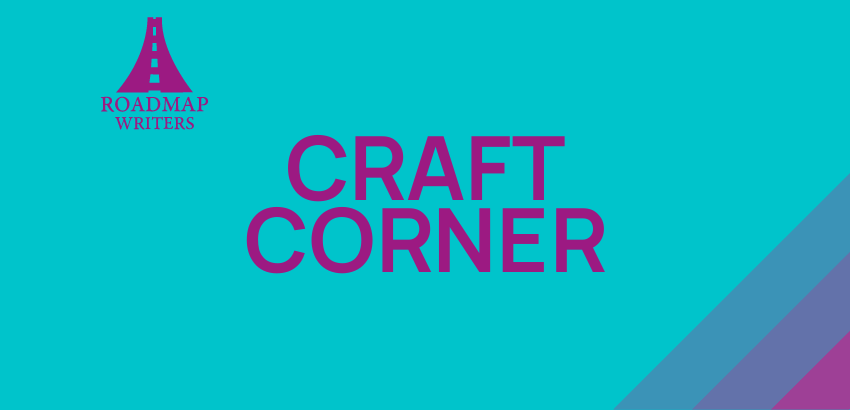
Craft Corner #10 – WHY DOES FORMATTING MATTER ANYWAY?
by Terra Joy
When we think about art and creativity, we think the opposite of rules and structure. There's a sense of intuition, spontaneity, novelty, flair, and maybe even rebelliousness. But the truth is, even art has rules and expectations around the presentation of that creativity.
Make The Reader's Job Easier:
A familiar, uniform presentation allows the story, emotion, and message to shine through. Because then, your reader isn't distracted trying to figure out the rules of your "container"; they can focus on the rules of the world you’ve created instead. This is part of why adhering to screenplay formatting standards each and every time is so important.
It's a Job Application and Business Proposal:
Another way to think about it is that every time you send your script out, you're essentially submitting a job application. You want to get hired or bankrolled. Your first draft is a creative outlet when it's just on your computer, but then it becomes a business proposal where millions of dollars are at stake. So the question becomes, why should someone who doesn't even know you well (or at all) consider giving money and/or time to help you make your movie or TV show, when you didn't even proofread and properly format your business proposal? Showbusiness is no different from any other industry in this way. Think back to your college applications, your last job application, when you submitted for a grant, wrote up a contract, or proposed a new initiative at work. Each of those cases have their own formatting rules, and any inconsistencies or typos would make you seem not up to task and be grounds for rejection.
"Proper formatting is the only aspect of screenwriting that is easy to master quickly. So if that's not on the page, how can your reader trust that you've mastered the more difficult story elements?"
~ Audrey Knox, Manager at The Cartel
It's All About Trust:
The question that comes to mind for industry professionals when they read a script that has formatting and proofreading mistakes is, how can they trust that you've taken the time to thoroughly research your setting and characters to make sure they are as authentic as possible, when you clearly didn't review your script before sending it out? Why should someone invest years when you didn't invest an hour or two in proofreading? It's all an indication of your level of self-motivation, commitment, attention to detail, and level of sustainable professionalism. Because it's not just about how this one script of yours presents and reads. It's about the habits you’ve formed and the level of quality they can predict for your whole portfolio, as well as the level of quality you could be relied upon to deliver for each and every draft of someone else’s TV show, movie, or podcast.
First Impressions Matter:
Your readers know just by LOOKING at your opening pages whether or not they are in the hands of a professional. This is one of the reasons why using Final Draft software is so key, because FD has its own font, spacing, and margins. So if you're using a different program, it's immediately noticeable. That in and of itself may not cause an exec or rep to stop reading and put your script in the "No" pile, but if there's also an early typo, or passive voice in action lines, or fourth wall breaking, or improper use of Continuous in scene headings, or background characters are not capitalized like proper nouns, then it's three strikes you're out before the characters and story have even been evaluated.
It's Not Personal:
Every exec has a pet peeve or two (or 382) when they're reading a script. They don't put a script down from a mean, ornery, punitive, or draconian place. It comes from years and years of having a massive pile of scripts to read every week, and having a clear sense by page 15 (or even 5) whether you and the draft can stand on your own two feet. It comes from incredibly steep, high-volume competition. That is why the more second nature you can make good formatting habits, the better. Because when someone does find a strong script that's a clean read with consistent, proper formatting that doesn’t distract, it’s such a relief. It means they can see themselves maybe taking you home to meet the parents. (And if you didn't already know, the dating comparisons to screenwriting are endless!)
Read Scripts Daily!
Speaking of competition, many writers who live/work outside the industry need to remember that they're not just competing with Allie from Iowa or Allan from the UK, who write and read on the weekends. They're also competing against up-and-coming Hollywood writers who live and breathe screenwriting as part of their day job; writers who read and analyze multiple scripts a day, which shows them what works well and what doesn't in a way that's applied and concrete vs. theoretical. So the adage "good writers are good readers" doesn't just apply to novelists. But the good news is that any screenwriter can replicate that experience for themselves by using resources like The Script Lab's screenplay library. But the key is to read scripts DAILY.
The Double Standard:
One note of caution, however, when studying the formatting and style choices of produced scripts: The writers for movies and TV shows you've already seen have established careers in the industry with credits to their name, so decision-makers already trust that they know how to write in a way that is effective and lucrative. This means they can afford to be a little footloose and fancy free with their formatting and style choices, and don't have to honor all the rules to a T. So if your reason for having long action blocks is that Shonda Rhimes does it, too, it's not going to work well for you.
Our Goal and Guide:
Our goal for you is to walk the path of least resistance when it comes to the presentation of your work; for the technical to be undeniably polished and meet the lowest common denominator, in order to earn you some trust and goodwill while you continue to polish the creative aspects of your storytelling. So keep your own doors open. Work to master the easy as much as you do the hard. And if you feel lost when it comes to formatting expectations, or need a refresher, here is a link to Roadmap's Formatting Guide.
Terra Joy
Director of Consultations & Script Services
Roadmap Writers
